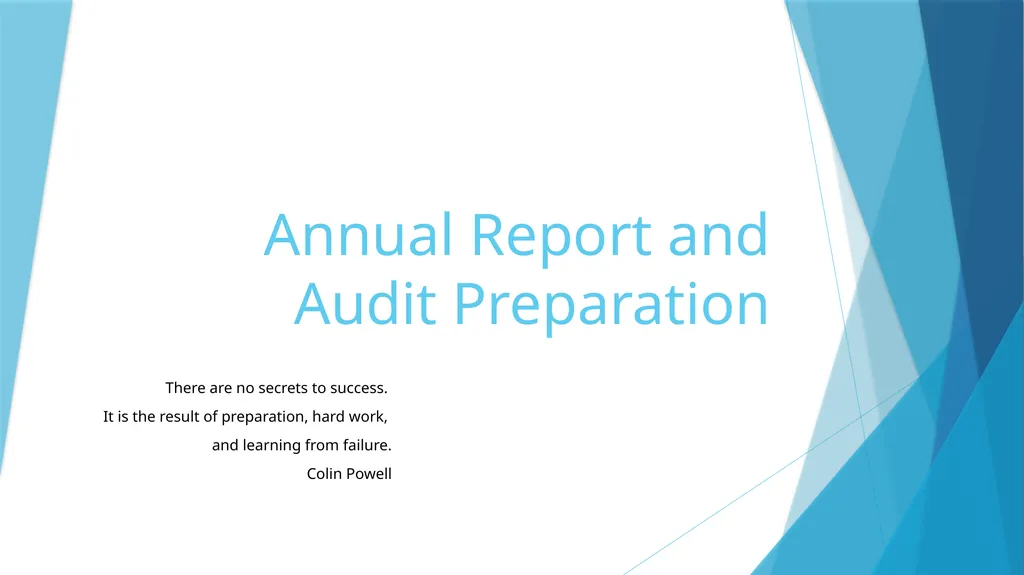
Author : jane-oiler | Published Date : 2025-06-23
Description: Annual Report and Audit Preparation There are no secrets to success. It is the result of preparation, hard work, and learning from failure. Colin Powell Deadline for filing: 150 days after the close of the fiscal year 2020 annual reportDownload Presentation The PPT/PDF document "" is the property of its rightful owner. Permission is granted to download and print the materials on this website for personal, non-commercial use only, and to display it on your personal computer provided you do not modify the materials and that you retain all copyright notices contained in the materials. By downloading content from our website, you accept the terms of this agreement.
Here is the link to download the presentation.
"Annual Report and Audit Preparation There are no"The content belongs to its owner. You may download and print it for personal use, without modification, and keep all copyright notices. By downloading, you agree to these terms.













